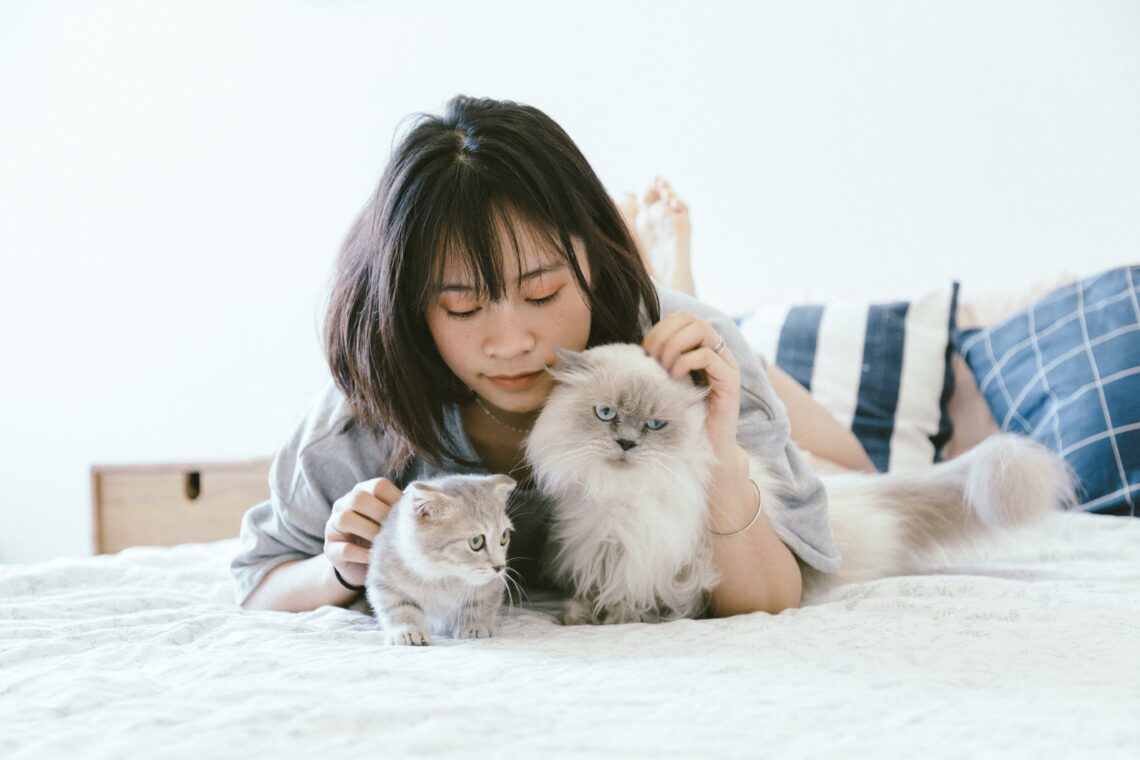
Becoming a pet parent
Having a pet is great—they can be your best friend, a confidante and it never hurts to have someone who’s always happy to greet you at the door (and immediately alert your attention to their empty food dish).
Besides getting a new buddy, there are a lot of benefits associated with owning a pet. In a report published by Human Animal Bond Research Institute, it was found that 74 per cent of pet owners reported mental health improvements and 96 per cent said that their pet has had a positive impact on their lives.
It’s no wonder so many Canadians are pet parents. In November 2020, Narrative Research released a report revealing that over one-half of Canadians currently have a pet in their household.
The excitement of getting a new pet can make it easy to forget that it is a big decision that requires commitment, patience and lots of work. In 2019, Humane Canada said that Canadian shelters took in more than 78,000 cats and around 28,000 dogs. The reasons included landlord issues, allergies, financial problems and behavioural issues.
Here are some tips on choosing the right pet to fit your lifestyle, unexpected expenses and other important information that will ensure you give your new companion the forever home it deserves.
Choose the right pet for your lifestyle
We all went through the phase of wanting a horse and had our dreams crushed when our parents wouldn’t let us keep one roped up to the backyard tool shed.
To be fair, they were right—a horse needs lots of room to roam and stretch their legs (and are you willing to have your backyard filled with poo?).
Some pets, similarly to horses, need a lot of exercise. Dogs can require anywhere from 30 minutes to two hours of daily exercise depending on the breed.
It helps to have a backyard for your dog to run around in but those living in apartments can also enjoy the company of man’s best friend, you’ll just have to be willing to go on lots of walks. You can also scope out your area for some off-leash parks so your dog can really let loose.
If your lifestyle won’t allow you to fulfill those exercise quotas, you can consider some pets that use a litter box to relieve themselves, like cats or rabbits.
Just make sure to clean it often or they’ll find somewhere else to go—maybe on those new Doc Martens? Or that cute fuzzy sweater? Either way, empty the litter box daily and scrub it down at least once a week. Dish soap, vinegar and some warm water is a great non-toxic option to keep it fresh and your pet happy.
Do your research
It’s important to remember that no pet is entirely maintenance free, some are just easier to manage. Every pet is going to require lots of care and it’s important to do your research regarding habitats, diets and behaviours.
Make sure your pet has the space they need. While rabbits don’t need walks, they won’t be satisfied being cooped up in a cage. Invest in some playpens so they can go wild and zoom around.
Another variable to consider is the type of diet your pet needs to sustain them. Some pets, like certain breeds of snakes, will require you to feed them mice or rats. If you can’t stomach this, it’s best to go for a pet that requires something simpler (and less alive).
It’s also important to note that some animals are happiest when they have another furry companion. Chinchillas and rabbits, for example, are social animals and often form bonded pairs, meaning they are emotionally connected and help each other navigate the world. Both species can experience loneliness and depression if they don’t have enough social interaction.
Do your research so you can be prepared for the type of care your pet needs.
Love don’t cost a thing but pets sure do
It’s easy to forget that there are various expenses that come with owning a pet and if you’re not careful, you could end up in way over your head.
There are two types of expenses associated with pet ownership: the initial and the annual costs.
Initial costs are one-time expenses and typically include adoption or breeder fees, spay or neuter surgeries, vaccinations and startup supplies like bowls, beds, leashes and toys.
The amount can vary depending on the pet; Rover released a report revealing that the initial cost of owning a dog in 2020 ranged from $1,315 to $3,290, while cats came in at around $755 to $1,885.
Adoption is a great way to stay in the lower end of the spectrum. Not only are adoption fees cheaper than the ones offered by breeders, adoption services will often cover the costs of vaccinations and spay or neutering procedures that can range anywhere from $350 to $800.
Annual costs are the expenses that pet parents pay every year. This includes food, litter, flea and tick prevention, dental care, poop bags and routine checkups at the vet.
Some pets require a lot of annual care, while others don’t. The yearly cost of owning a dog can be up to $2,385, while other pets like small breeds of birds will only need around $35 to $300 per year to be taken care of.
Construct a realistic budget for pet care and see if it aligns with your income. If the costs are coming in too high, it’s probably best to hold off on pet ownership for a little while.
Consider fostering
If you’re not quite ready to make a long-term commitment or it’s not economically feasible, an alternative to pet ownership is fostering.
The Toronto Humane Society runs a foster program that provides high-risk animals with the opportunity to be placed into a temporary home instead of the busy environment of a shelter. The program provides foster parents with food, medication, supplies and veterinary care for the animals, making it a great option for those who can’t quite afford their own pet yet.
Another fostering organization you can check out is Rabbit Rescue, which focuses on finding fosters for rabbits that have been neglected and abandoned. While foster parents have to provide hay, food and water for the rabbits, Rabbit Rescue covers the costs of pens, medical bills and neutering or spaying surgeries.
You can help out by giving these pets a temporary but loving home, while the organizations work to find them permanent arrangements.
Whether you decide to foster or commit to pet parenthood, make sure you understand the responsibilities you are taking on. Everyone, even those with fur, scales or feathers, deserves a loving and stable home.
About the author
Olivia Matheson-Mowers is a former reporter for Youth Mind. When she’s not writing, or playing with her cat, Daisy, you can find her curled up in her heated blanket watching seasons 1-6 of Dragon Ball Z and complaining about seasons 7-9.







